Sebastian Pineda Arango
ChronosX: Adapting Pretrained Time Series Models with Exogenous Variables
Mar 15, 2025



Abstract:Covariates provide valuable information on external factors that influence time series and are critical in many real-world time series forecasting tasks. For example, in retail, covariates may indicate promotions or peak dates such as holiday seasons that heavily influence demand forecasts. Recent advances in pretraining large language model architectures for time series forecasting have led to highly accurate forecasters. However, the majority of these models do not readily use covariates as they are often specific to a certain task or domain. This paper introduces a new method to incorporate covariates into pretrained time series forecasting models. Our proposed approach incorporates covariate information into pretrained forecasting models through modular blocks that inject past and future covariate information, without necessarily modifying the pretrained model in consideration. In order to evaluate our approach, we introduce a benchmark composed of 32 different synthetic datasets with varying dynamics to evaluate the effectivity of forecasting models with covariates. Extensive evaluations on both synthetic and real datasets show that our approach effectively incorporates covariate information into pretrained models, outperforming existing baselines.
Ensembling Finetuned Language Models for Text Classification
Oct 25, 2024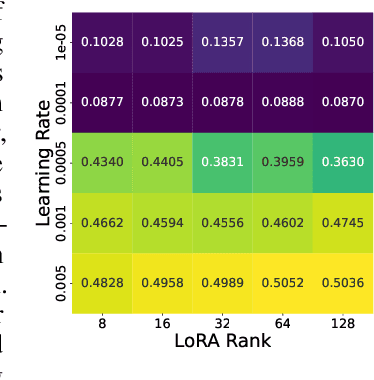

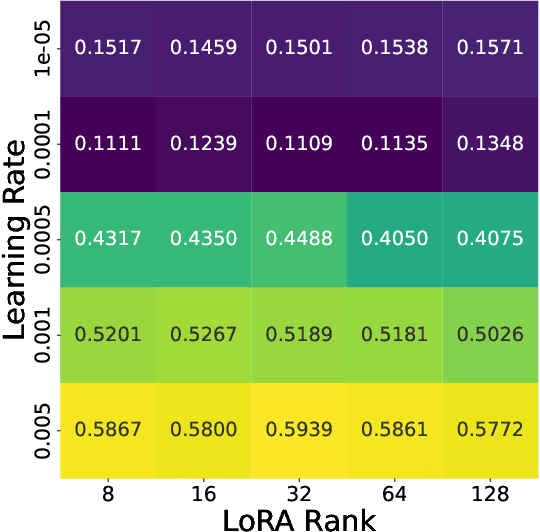
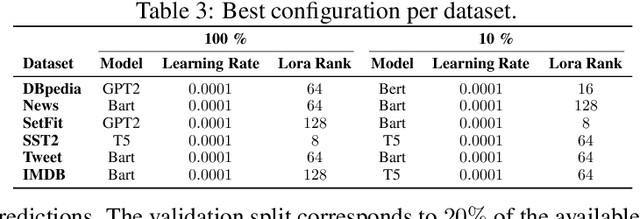
Abstract:Finetuning is a common practice widespread across different communities to adapt pretrained models to particular tasks. Text classification is one of these tasks for which many pretrained models are available. On the other hand, ensembles of neural networks are typically used to boost performance and provide reliable uncertainty estimates. However, ensembling pretrained models for text classification is not a well-studied avenue. In this paper, we present a metadataset with predictions from five large finetuned models on six datasets, and report results of different ensembling strategies from these predictions. Our results shed light on how ensembling can improve the performance of finetuned text classifiers and incentivize future adoption of ensembles in such tasks.
Dynamic Post-Hoc Neural Ensemblers
Oct 06, 2024



Abstract:Ensemble methods are known for enhancing the accuracy and robustness of machine learning models by combining multiple base learners. However, standard approaches like greedy or random ensembles often fall short, as they assume a constant weight across samples for the ensemble members. This can limit expressiveness and hinder performance when aggregating the ensemble predictions. In this study, we explore employing neural networks as ensemble methods, emphasizing the significance of dynamic ensembling to leverage diverse model predictions adaptively. Motivated by the risk of learning low-diversity ensembles, we propose regularizing the model by randomly dropping base model predictions during the training. We demonstrate this approach lower bounds the diversity within the ensemble, reducing overfitting and improving generalization capabilities. Our experiments showcase that the dynamic neural ensemblers yield competitive results compared to strong baselines in computer vision, natural language processing, and tabular data.
Chronos: Learning the Language of Time Series
Mar 12, 2024Abstract:We introduce Chronos, a simple yet effective framework for pretrained probabilistic time series models. Chronos tokenizes time series values using scaling and quantization into a fixed vocabulary and trains existing transformer-based language model architectures on these tokenized time series via the cross-entropy loss. We pretrained Chronos models based on the T5 family (ranging from 20M to 710M parameters) on a large collection of publicly available datasets, complemented by a synthetic dataset that we generated via Gaussian processes to improve generalization. In a comprehensive benchmark consisting of 42 datasets, and comprising both classical local models and deep learning methods, we show that Chronos models: (a) significantly outperform other methods on datasets that were part of the training corpus; and (b) have comparable and occasionally superior zero-shot performance on new datasets, relative to methods that were trained specifically on them. Our results demonstrate that Chronos models can leverage time series data from diverse domains to improve zero-shot accuracy on unseen forecasting tasks, positioning pretrained models as a viable tool to greatly simplify forecasting pipelines.
Quick-Tune: Quickly Learning Which Pretrained Model to Finetune and How
Jun 11, 2023
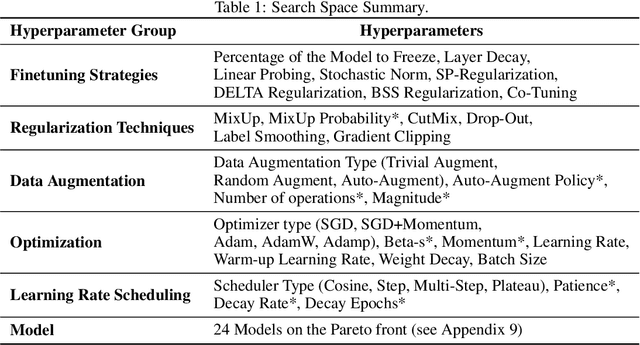
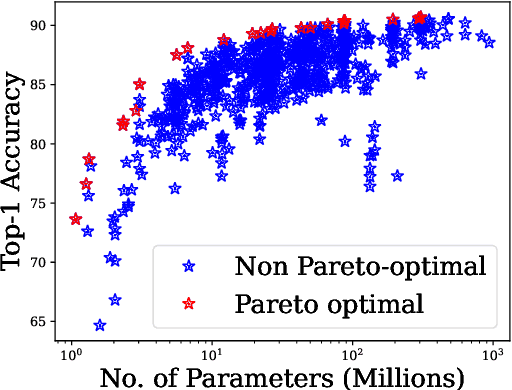

Abstract:With the ever-increasing number of pretrained models, machine learning practitioners are continuously faced with which pretrained model to use, and how to finetune it for a new dataset. In this paper, we propose a methodology that jointly searches for the optimal pretrained model and the hyperparameters for finetuning it. Our method transfers knowledge about the performance of many pretrained models with multiple hyperparameter configurations on a series of datasets. To this aim, we evaluated over 20k hyperparameter configurations for finetuning 24 pretrained image classification models on 87 datasets to generate a large-scale meta-dataset. We meta-learn a multi-fidelity performance predictor on the learning curves of this meta-dataset and use it for fast hyperparameter optimization on new datasets. We empirically demonstrate that our resulting approach can quickly select an accurate pretrained model for a new dataset together with its optimal hyperparameters.
Deep Pipeline Embeddings for AutoML
May 24, 2023



Abstract:Automated Machine Learning (AutoML) is a promising direction for democratizing AI by automatically deploying Machine Learning systems with minimal human expertise. The core technical challenge behind AutoML is optimizing the pipelines of Machine Learning systems (e.g. the choice of preprocessing, augmentations, models, optimizers, etc.). Existing Pipeline Optimization techniques fail to explore deep interactions between pipeline stages/components. As a remedy, this paper proposes a novel neural architecture that captures the deep interaction between the components of a Machine Learning pipeline. We propose embedding pipelines into a latent representation through a novel per-component encoder mechanism. To search for optimal pipelines, such pipeline embeddings are used within deep-kernel Gaussian Process surrogates inside a Bayesian Optimization setup. Furthermore, we meta-learn the parameters of the pipeline embedding network using existing evaluations of pipelines on diverse collections of related datasets (a.k.a. meta-datasets). Through extensive experiments on three large-scale meta-datasets, we demonstrate that pipeline embeddings yield state-of-the-art results in Pipeline Optimization.
Breaking the Paradox of Explainable Deep Learning
May 22, 2023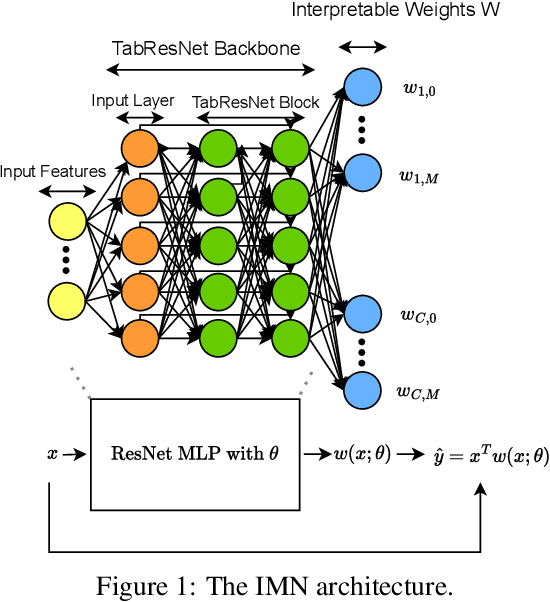
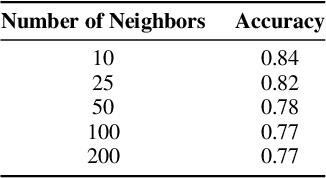


Abstract:Deep Learning has achieved tremendous results by pushing the frontier of automation in diverse domains. Unfortunately, current neural network architectures are not explainable by design. In this paper, we propose a novel method that trains deep hypernetworks to generate explainable linear models. Our models retain the accuracy of black-box deep networks while offering free lunch explainability by design. Specifically, our explainable approach requires the same runtime and memory resources as black-box deep models, ensuring practical feasibility. Through extensive experiments, we demonstrate that our explainable deep networks are as accurate as state-of-the-art classifiers on tabular data. On the other hand, we showcase the interpretability of our method on a recent benchmark by empirically comparing prediction explainers. The experimental results reveal that our models are not only as accurate as their black-box deep-learning counterparts but also as interpretable as state-of-the-art explanation techniques.
Deep Ranking Ensembles for Hyperparameter Optimization
Mar 27, 2023Abstract:Automatically optimizing the hyperparameters of Machine Learning algorithms is one of the primary open questions in AI. Existing work in Hyperparameter Optimization (HPO) trains surrogate models for approximating the response surface of hyperparameters as a regression task. In contrast, we hypothesize that the optimal strategy for training surrogates is to preserve the ranks of the performances of hyperparameter configurations as a Learning to Rank problem. As a result, we present a novel method that meta-learns neural network surrogates optimized for ranking the configurations' performances while modeling their uncertainty via ensembling. In a large-scale experimental protocol comprising 12 baselines, 16 HPO search spaces and 86 datasets/tasks, we demonstrate that our method achieves new state-of-the-art results in HPO.
Transformers Can Do Bayesian Inference
Jan 25, 2022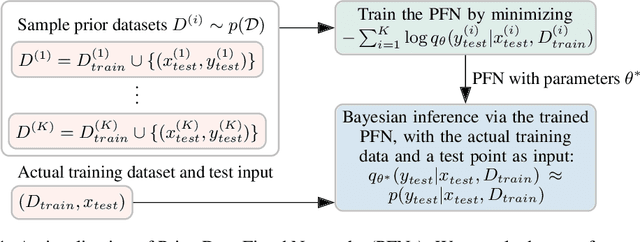



Abstract:Currently, it is hard to reap the benefits of deep learning for Bayesian methods, which allow the explicit specification of prior knowledge and accurately capture model uncertainty. We present Prior-Data Fitted Networks (PFNs). PFNs leverage large-scale machine learning techniques to approximate a large set of posteriors. The only requirement for PFNs to work is the ability to sample from a prior distribution over supervised learning tasks (or functions). Our method restates the objective of posterior approximation as a supervised classification problem with a set-valued input: it repeatedly draws a task (or function) from the prior, draws a set of data points and their labels from it, masks one of the labels and learns to make probabilistic predictions for it based on the set-valued input of the rest of the data points. Presented with a set of samples from a new supervised learning task as input, PFNs make probabilistic predictions for arbitrary other data points in a single forward propagation, having learned to approximate Bayesian inference. We demonstrate that PFNs can near-perfectly mimic Gaussian processes and also enable efficient Bayesian inference for intractable problems, with over 200-fold speedups in multiple setups compared to current methods. We obtain strong results in very diverse areas such as Gaussian process regression, Bayesian neural networks, classification for small tabular data sets, and few-shot image classification, demonstrating the generality of PFNs. Code and trained PFNs are released at https://github.com/automl/TransformersCanDoBayesianInference.
Multimodal Meta-Learning for Time Series Regression
Aug 05, 2021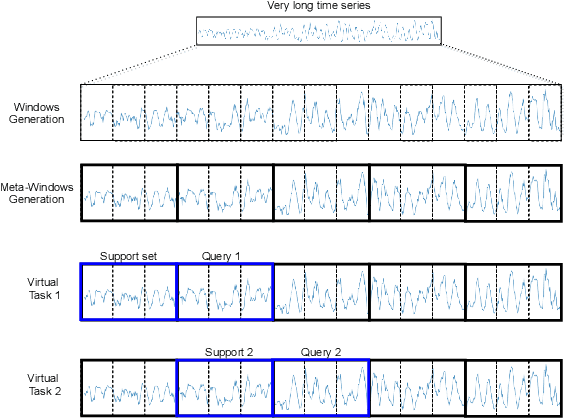
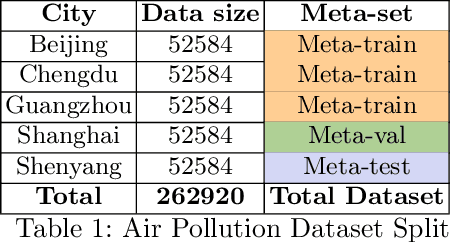
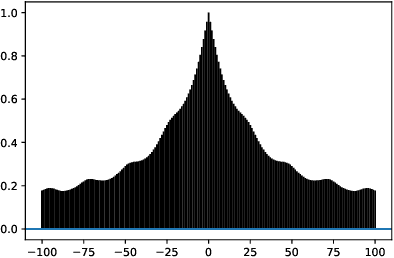
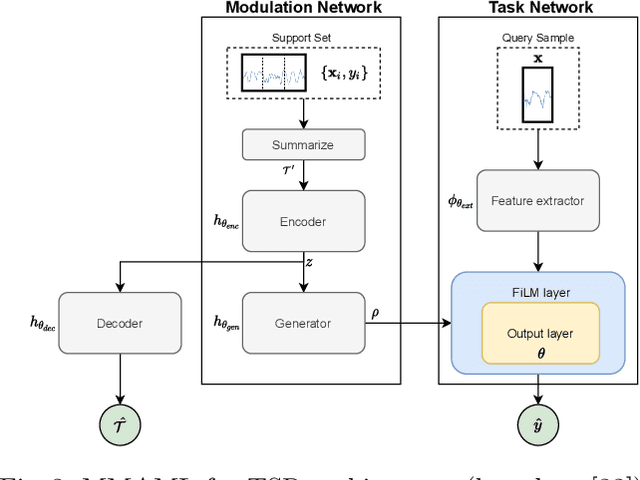
Abstract:Recent work has shown the efficiency of deep learning models such as Fully Convolutional Networks (FCN) or Recurrent Neural Networks (RNN) to deal with Time Series Regression (TSR) problems. These models sometimes need a lot of data to be able to generalize, yet the time series are sometimes not long enough to be able to learn patterns. Therefore, it is important to make use of information across time series to improve learning. In this paper, we will explore the idea of using meta-learning for quickly adapting model parameters to new short-history time series by modifying the original idea of Model Agnostic Meta-Learning (MAML) \cite{finn2017model}. Moreover, based on prior work on multimodal MAML \cite{vuorio2019multimodal}, we propose a method for conditioning parameters of the model through an auxiliary network that encodes global information of the time series to extract meta-features. Finally, we apply the data to time series of different domains, such as pollution measurements, heart-rate sensors, and electrical battery data. We show empirically that our proposed meta-learning method learns TSR with few data fast and outperforms the baselines in 9 of 12 experiments.
 Add to Chrome
Add to Chrome Add to Firefox
Add to Firefox Add to Edge
Add to Edge